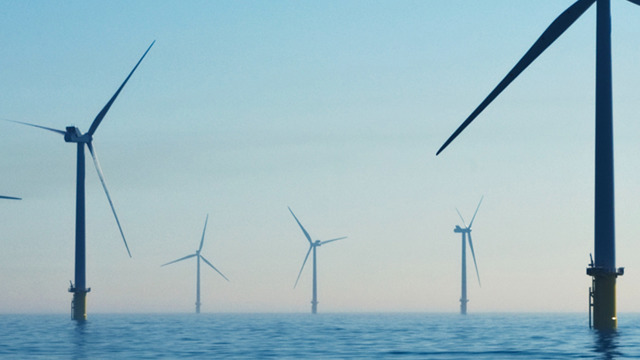Offshore renewable is gaining traction, and it is reassuring to see bi-partisan support for the use of this resource as a key platform to New Zealand's renewable energy plans. It is a good sign if the only major point of disagreement is how quickly a project can be mobilised for investment.
Late last week, the National Party announced another limb of its Electrify NZ policy ahead of the election which outlines the party's proposed pathway to a lower emissions economy through renewable electricity generation. One of the key parts of this announcement was to invest in offshore wind energy and fast track permits.
New Zealand does not currently have any offshore wind generation. The Labour Government has been developing rules to allow offshore wind farms, including a dedicated new permitting regime, with the Ministry of Business, Innovation and Employment currently consulting on proposed regulations to enable offshore wind. National, however, characterises the draft regulations as too onerous and investment inhibiting.
If elected, National's proposed policy would:
-
fast track offshore wind permits so feasibility studies can get underway;
-
complete the development of offshore wind regulations including commercial permits within one year;
-
require consenting decisions for offshore wind generation to be made within two years of application – onshore wind, solar and geothermal generation consenting decisions would be required in one year (as announced earlier in the year in another limb of the policy);
-
require consents for new transmission lines to be issued within one year and eliminate consents for upgrading existing transmission lines (with particular limits); and
-
work with Crown Research Institutes to publish weather and geology data to assist investment in offshore wind.
The National Party also announced a "National Infrastructure Agency" to provide support for funding pressures on councils for other infrastructure, including the port upgrades needed for offshore wind. The National Infrastructure Agency would be tasked with funding, procurement and delivery of infrastructure.
Please refer to our previous blog post for all energy-related policies on offer from the political parties most likely to enter government, available here and our publication on the Government's energy announcements made in August here.
This article is intended only to provide a summary of the subject covered. It does not purport to be comprehensive or to provide legal advice. No person should act in reliance on any statement contained in this publication without first obtaining specific professional advice. If you require any advice or further information on the subject matter of this newsletter, please contact the partner/solicitor in the firm who normally advises you, or alternatively contact one of the partners listed below.



